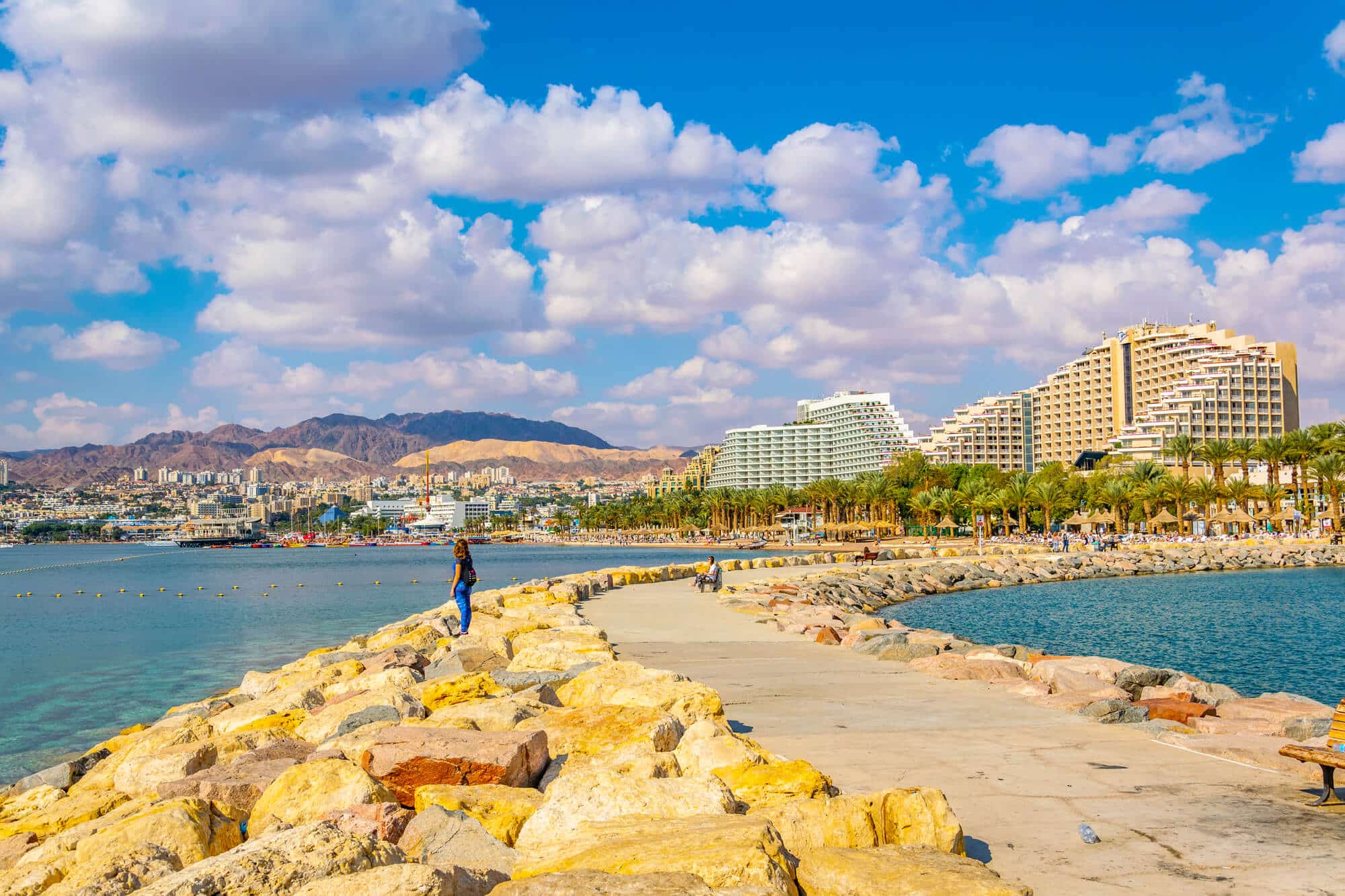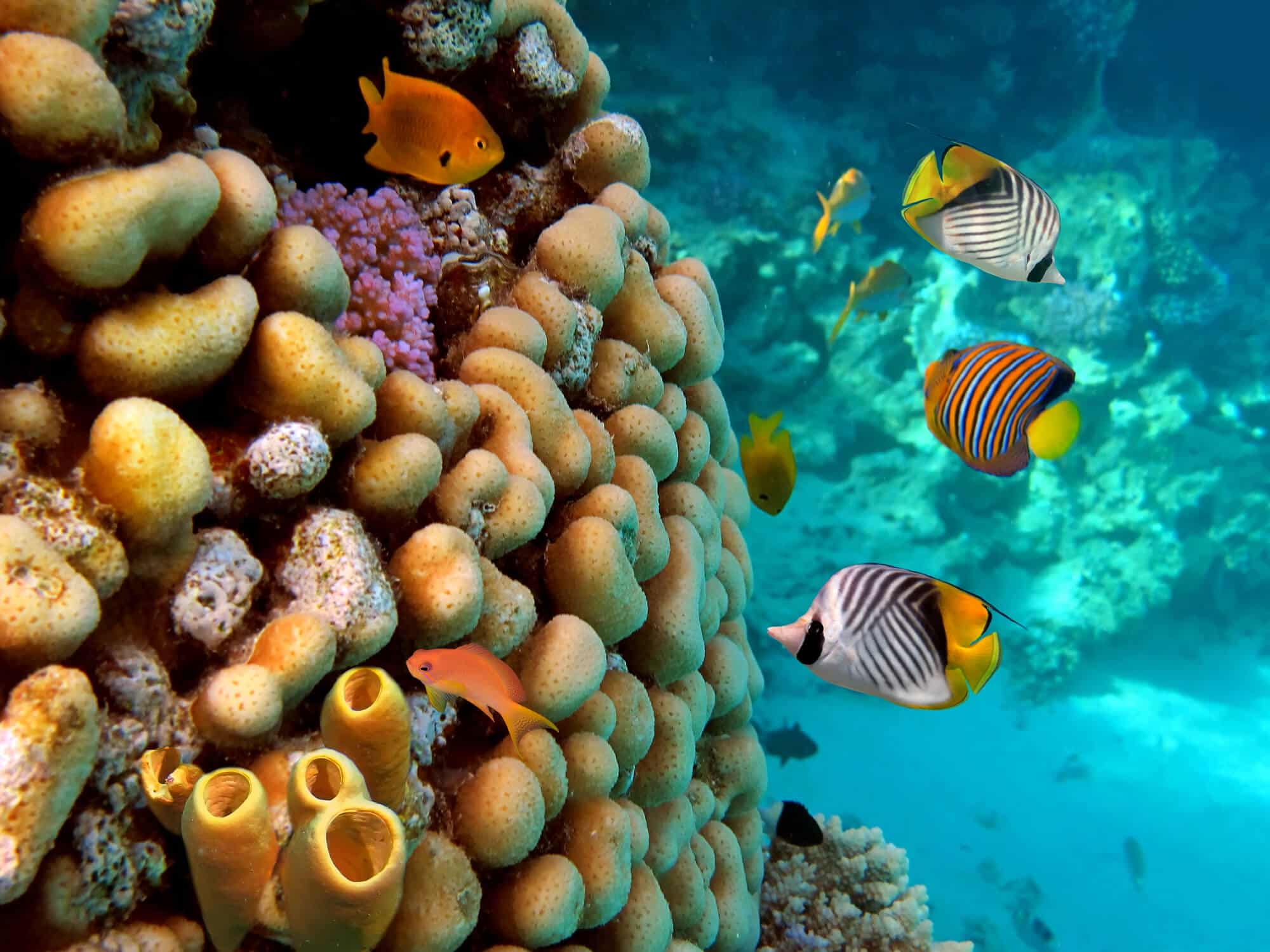Recently, Eilat was chosen to participate in a unique project of the European Union, designed to bring it to a state of zero carbon emissions, and allow it to become an environmental leader. Will the city meet the goal?
By Amnon Director, Zivata - Science and Environment News Agency

Eilat is a city with extraordinary environmental potential: it has 365 sunny days a year, it is isolated from the rest of Israel (which forces and allows it to be energy independent) and it is located on the shore of the tremendous natural resource that is the Red Sea. In recent years, Eilat has been promoting diverse programs to make the city more sustainable and less polluted. However, the ambitious goal of zeroing out the city's carbon emissions is still a long way off.
Positive news in the field came recently, when Eilat was chosen to participate in the project US Mission: a prestigious program of the European Union designed to transform cities into environmental leaders. Will Israel's southern tourist city be the first zero-emissions city in Israel?
The main goals of the EU Missions initiative are that the cities that participate in it will reach full carbon neutrality (that is, reach a state where they will emit the lowest amount of greenhouse gases - and all the amount that will be emitted will be absorbed by various natural and artificial means) - and that they will act as a center of experimentation and innovation that will influence other cities Europe to follow in the footsteps of the selected cities, and also reach carbon neutrality, by 2050. In fact, the cities that will participate in it will serve as a kind of technological incubator for the implementation of pilots in the field of sustainability. Eilat is one of 112 cities chosen to take part in the project (out of 100 European cities, and 12 cities outside the European Union), and the only one from Israel included in it.
A critical moment in urban history
The EU Missions project is part of the research and innovation program Horizon Europe - the largest program of its kind of the European Union, which is budgeted at 95 billion euros, and which includes the financing of a wide range of technological projects designed to deal with the climate crisis and achieve the sustainable development goals of the United Nations .
As part of the project, Eilat will receive close support in the regulatory, financial and technological fields. In the first phase, the selected cities will begin the process of developing urban climate contracts that are adapted to the individual needs of the city, within the framework of which a clear and orderly multi-year work plan will be formulated in the fields of energy, smart transportation, construction and waste for the city. The process will include public participation alongside collaborations with research bodies and the private sector (in the case of Eilat, the bodies with which the collaboration will take place will be from both Israel and Europe). In the second phase, innovative projects will operate in each city according to its specific capabilities and characteristics, such as collaborations between twin cities for the exchange of knowledge and technologies, a research project for scientific and technical services led by the European Research Center, a project for a safe, inclusive and sustainable transportation plan, and more.

The European Union's innovation and sustainability initiative comes at a critical moment in urban history, and it focuses specifically on cities in order to deal with the challenges that increasing urbanization poses to the world: more than half of the world's population now lives in cities, and according to Report של The United Nations, in about 30 years, this number will grow to about 68 percent of all people. Cities consume over 65 percent of all global energy - which leads toיותר from 60 percent From rule Emissions gaseous the greenhouse. That is, as urban populations grow, so will their influence on the climate.
On the other hand, cities are also an opportunity for change, because the relative impact of a city resident on the environment is much lower than that of a rural area resident, and thanks to the large human concentration in them, major changes can be achieved through specific projects that are concentrated in cities.
Strive for 100 percent solar electricity
"All the plans and initiatives that have been done in Eilat in recent years have given us a significant advantage in the European Union's choice of Eilat as a partner in the project," says Assaf Edmon, director of the Eilat-Ilot Regional Environmental Unit, who leads the project on behalf of Eilat. In recent years, many solar fields and roofs have been established in the area, And about 100 percent of Eilat's electricity consumption during the day It is from a solar source, as the city plans to switch to using only solar energy throughout the day - including energy storage for the night hours. According to the School of Sustainability at Reichman University, Eilat Is located instead of The second, after Tel Aviv, in the index of the smartest and most sustainable cities in Israel. "In the last decade, Eilat has been a leader in aspects of reducing emissions in Israel, among other things by promoting solar energy, replacing all urban lighting and encouraging smart, low-carbon transportation," says Edmon.
"One of Eilat's strengths is the fact that it is cut off from the rest of Israel, and exists as a sort of energy island," says Edmon. "We are a small place, and this allows us to do significant things with less money and in an easier way. The goal for us is that Eilat will produce sustainable models that other cities in Israel will be able to imitate.'
According to Dr. Orli Ronan, head of the urban sustainability track and the urban innovation and sustainability laboratory at the Porter School of Environmental Studies at Tel Aviv University, the mere participation in the program obliges the municipality of Eilat and the professional parties to reach the goal of carbon balance. "The challenge is to mobilize the business and private sector as well," she says. "The more significantly the city has the ability to support, encourage, incentivize and produce pilots, the more significantly its ability to harness additional entities."
What does Eilat need to do to be clean, sustaining and carbon balanced? "The carbon analysis in cities is divided into 70 percent energy, 20 percent transportation and 10 percent waste," explains Ronan. "Thus, if Eilat manages to sustainably handle waste within the city limits, without transporting it and without landfilling, it will be able to save 10 percent of its carbon emissions."
A city that listens to scientists
It should be noted that these days a new boardwalk is being built in Eilat, whose development plans included the addition of lighting fixtures, the light pollution expected to be caused by them could have caused significant damage to the city's famous coral reefs. Following A letter recently sent by 250 scientists, through the Israeli Association for Ecology and Environmental Sciences, where the demand to cancel the dangerous lighting was raised, new development plans for the boardwalk were published late last week, within the framework of which the addition of lighting to the boardwalk was canceled. "I want to thank the mayor, Mr. Eli Lankri, who listened to the scientists and gave the planners the directive to change the development plans," says Dr. Uri Sharon, CEO of the Israel Association for Ecology and Environmental Sciences. "All that remains is to wait and see that the development of the boardwalk will be done in accordance with the principles of preserving nature outlined in the scientists' letter, and that they will not remain at the level of plans only."
Even when it comes to carbon emissions, there seems to be room for optimism. "I think Eilat is at a relatively high level of readiness to reach a state of zero emissions," says Admon. "Of course this is a very big challenge, and we have a long way to go." According to him, there are areas in which Eilat is already independent, such as electricity, but others do not depend only on it - such as transportation. "It will be difficult to prevent non-electric vehicles from entering the Eilat area. Either way, we will do everything possible to reach the goal of carbon neutrality in time, and the framework of the new venture can undoubtedly take us the furthest forward,' he concludes.
More of the topic in Hayadan:
